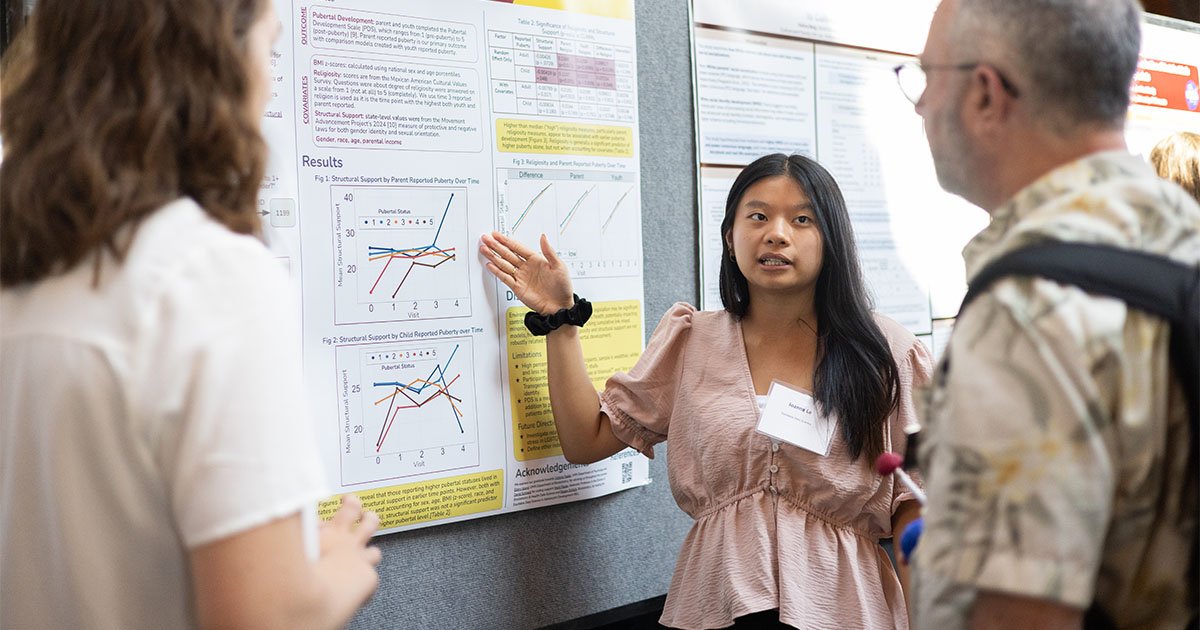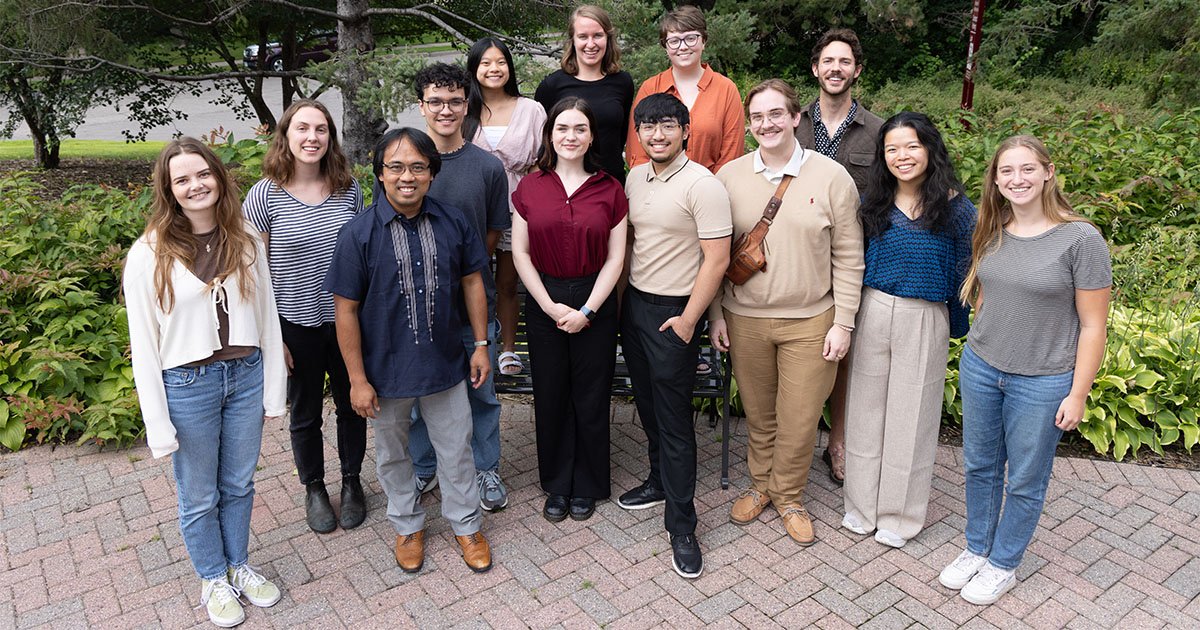You might not think of data as a real showstopper, but when a student in the School of Public Health’s equitable data science program presented her data visualization project, there was an audible gasp in the room, says Associate Professor Mark Fiecas: “To see the data presented in such a visually compelling way, people were just like, ‘this is awesome.’”

The student participated in SPH’s first-ever undergraduate summer program on equitable data science, which explored several key themes: Making data come alive, seeing beyond the numbers on a spreadsheet to understand the lives of people represented there, and being mindful of which populations of people may have been recruited into a study in the first place.
After a highly competitive application process, 10 students from colleges across the country were selected to participate in the full-time, paid, 10-week program that kicked off in early June and wrapped up on August 9. Hosted by SPH in collaboration with the Masonic Institute for the Developing Brain, the program was made possible through a grant from the National Science Foundation, with funding support from the SPH Division of Biostatistics and Health Data Science.
Fiecas, the project lead, said a key focus of the program was the idea of community engagement. Through a summer-long research project, field trips, guest lectures, poster presentations, and site visits to community organizations like The Family Partnership, the students learned to consistently think about “who is in [their] data,” as Fiecas put it. “We never want to lose sight of the fact that there are real people here. These aren’t just random numbers on a spreadsheet.”
“The concept of community engagement in research motivated and inspired all the work we did this summer,” he said. “Making sure the students are seeing the people and understanding the issues behind the data was a big overarching thing for the whole program.”

That focus on community engagement made an impression on Shelby Tisdale, a Duke University statistics major who participated in the program. “The professors and researchers we interacted with are really passionate about doing research in order to apply it to real issues in society,” she observed. Tisdale added that she is from a lower-income community in Mississippi—a place, she said, that a lot of researchers focus on—and underscored the importance of engaging with the community.
“We talked a lot about the need to be responsible, socially engaged researchers. A lot of researchers have never met the people they’re studying. I believe it’s important to get people from the communities we’re researching involved and engaged in the research,” Tisdale said.
Matthew Farnsworth, a math and economics major from Belmont University in Nashville, mentioned the visit to The Family Partnership to hear about their PRIDE Program, which conducts research and outreach on victims of sexual abuse and trafficking. Farnsworth said it was an example of the program’s aim of “going outside of the traditional academic space to learn about community-driven approaches to research. It was a strong reminder that there are often complex life stories in the data, and that people have provided very honest, personal information to researchers.”
In addition to data and spreadsheets, the 10 participants also found time to have fun together and get to know the Twin Cities. Fiecas said the program for the summer included a play at the Guthrie Theater, a Saint Paul Saints baseball game, a picnic at Minnehaha Falls, and other activities. Tisdale, who has never been to the Midwest before, said she thought the Twin Cities are absolutely amazing. Farnsworth was also impressed. “The general consensus is that Minnesota is a great place, and we’re all considering moving here in the future,” he said.

